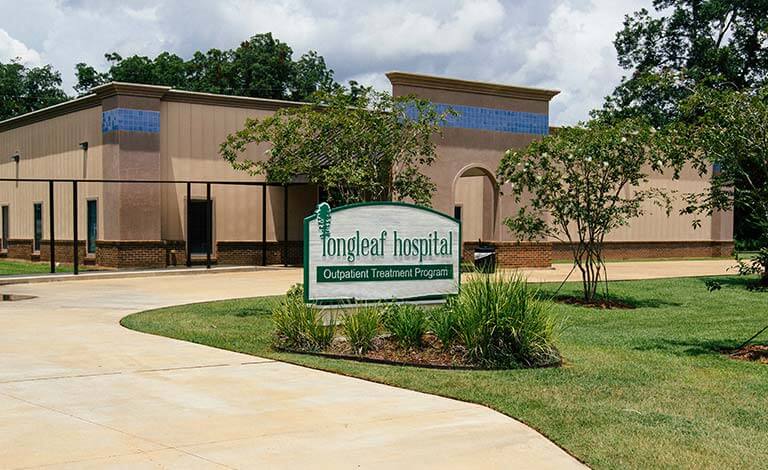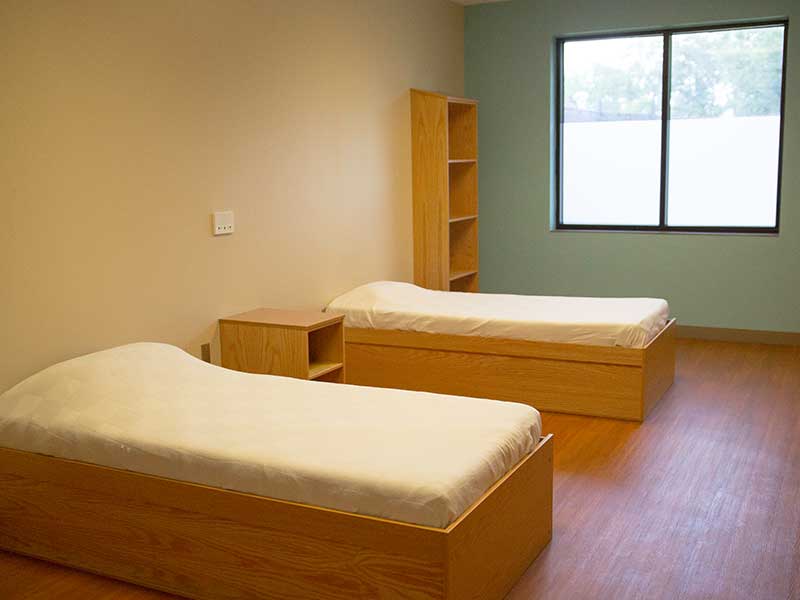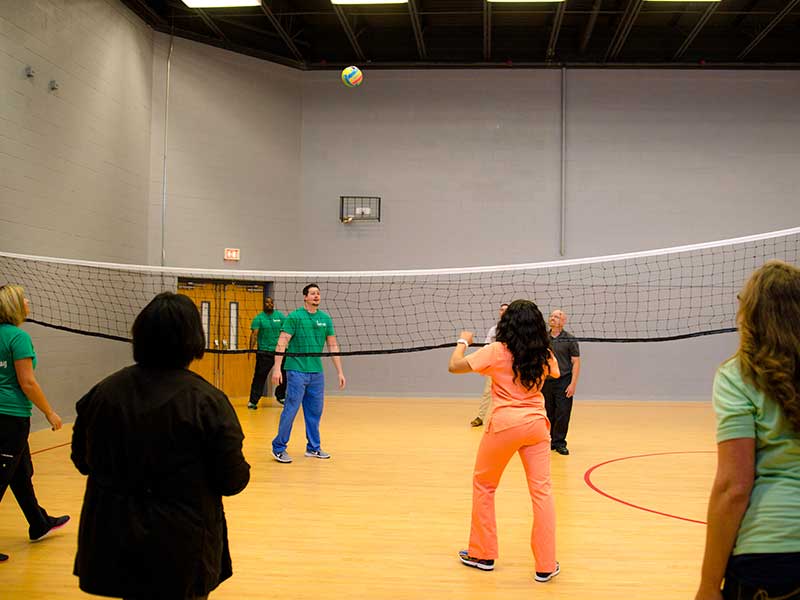Our commitment to comprehensive care for disruptive mood dysregulation disorder means that we are prepared to provide you with the type, level, duration, and intensity of services that will best meet your needs.
DMDD Treatment
Learn more about DMDD treatment at Longleaf Hospital in Alexandria, LA
Disruptive mood dysregulation disorder otherwise referred to by the acronym DMDD, is a type of childhood mental illness that elicits chronic and pervasive irritability. Symptoms of DMDD will develop prior to the age of 10, but will not be diagnosed until a child is at least six years of age. However, the symptoms of this illness can continue to impact a young person’s life through the age of 18, at which time, if symptoms continue to persist, a new diagnosis will be given.
Adolescents who are suffering from disruptive mood dysregulation disorder may struggle in various aspects of life. Their abilities to perform to expectation academically can be hindered, causing much strife within the school setting. Additionally, social interactions may be troublesome, as many adolescents with DMDD act out on their distress in an aggressive manner. The behaviors that adolescents who are suffering from DMDD often display can also cause much disruption within their families and can make it difficult for these young people to enjoy many of the activities that other youths participate in.
Fortunately, however, the symptoms of disruptive mood dysregulation disorder do not have to tarnish your child’s life. By receiving comprehensive treatment at a clinic that specializes in treating adolescents who are struggling with mental illness, including DMDD, your child can develop the skills necessary for managing his or her symptoms and living a full and productive life.
At Longleaf Hospital, we recognize how important it is for adolescents to get the care they need as quickly and as thoroughly as possible so that their lives do not have to be tainted with distress. Therefore, by choosing our treatment center, which is conveniently located in Alexandria, Louisiana, your child can take the first step towards a bright, happy, and healthy future.
How to Help a Loved One
Helping a loved one get treatment for DMDD
If your son, daughter, or another adolescent in your life is suffering from disruptive mood dysregulation disorder, you are well aware of the conflict that it has caused in not only his or her life but in your and the rest of your family’s lives as well. The emotional turmoil that you experience in watching your child suffer can be treacherous, leaving you feeling desperate to find a way to help him or her. You may also experience much frustration and aggravation as your child misbehaves and acts out aggressively for seemingly no reason.
Please understand that the emotions you are experiencing are understandable and are to be expected. However, it is also important to understand that there are, in fact, things that you can do to help your child. Consider the following:
- Learn about the signs, symptoms, and effects of disruptive mood dysregulation disorder. Becoming educated on what your child is going through can help encourage understanding, acceptance, and patience.
- Research reputable treatment centers that specialize in providing care for adolescents. The needs of young people receiving treatment are much different than that of adults, so it is imperative that your child works with professionals who are trained in providing care for adolescents.
- Schedule an assessment or evaluation at a treatment center of your choosing. Explain to your child what will happen. While he or she may act out as a result of the conversation, it is important to be transparent with him or her. Surprising your child or placing him or her in unexpected circumstances may only serve to worsen the situation.
- Once you have selected a treatment provider and your child has begun receiving care, be an active part of the therapeutic process. Attend family sessions when available, touch base with your child’s treatment team consistently, and check in with your child daily.
- Work with your child’s treatment provider to develop an aftercare plan for him or her once he or she has completed treatment. Inquire about ways that you can help encourage the healing process while at home, and discover things that you can do to help expand upon the skills and tools that your child learned while in treatment.
Why Consider Treatment
Why consider treatment for DMDD at Longleaf Hospital in Alexandria, LA
When left untreated, the symptoms of disruptive mood dysregulation disorder can be devastating for adolescents and their families. As was previously mentioned, suffering from this disorder can cause young people to struggle in academic settings. Their behaviors may cause them to consistently be in trouble, potentially escalating to the point of suspension or expulsion. The adolescent’s academic work may also suffer as he or she may struggle to maintain focus on the tasks at hand, or may become overwhelmed by his or her symptoms and act out in tumultuous ways in an attempt to dispel the distress. Adolescents who are suffering from DMDD can also struggle to act appropriately in social situations, which can cause them to feel isolated as they find it difficult to form healthy relationships with peers.
Without treatment, youth who are suffering from DMDD may also turn to alternative means of self-medication in an attempt to alleviate their symptoms. Such acts can include drinking alcohol, experimenting with drugs, or engaging in self-harming behaviors. Tragically, suicidal ideation is also a risk for adolescents who are suffering from the symptoms of DMDD. Furthermore, the longer that treatment is delayed, the more likely it is that symptoms will continue to worsen or that symptoms of another type of mental health condition will manifest.
Fortunately, however, these effects can be successfully mediated or avoided altogether by allowing an adolescent to receive comprehensive care at a clinic or hospital where he or she can learn how to manage his or her symptoms and develop tools for successfully navigating through his or her future.
Types of Treatment
Types of DMDD treatment offered at Longleaf Hospital in Alexandria, LA
Located in Alexandria, Louisiana, Longleaf Hospital is a leader in the provision of mental health treatment for adolescents between the ages of 11 and 17. Having undergone extensive renovations and upgrades in 2015, our hospital supplies a state-of-the-art treatment setting, fully conducive to helping patients achieve true and lasting healing.
With the knowledge that adolescents who are suffering from mental health conditions experience symptoms differently, and therefore respond to treatment differently than adults, we are pleased to be able to offer comprehensive care in a manner that is tailored for the needs and developmental stages of young people. As such, when youth come to us suffering from the symptoms of disruptive mood dysregulation disorder, we are fully equipped to offer them personalized care that meets them where they are at in their struggles.
At Longleaf Hospital, we have made it our mission to deliver the most advanced level of care while simultaneously meeting each adolescent’s specific needs. In doing so, we are able to help our patients achieve long-term success in reaching and exceeding their treatment goals.
Adolescents who come to us struggling with the symptoms and effects of DMDD will be given the opportunity to engage in a therapeutic milieu that is tailored to help them to not only overcome their distress but also to develop coping skills in order to manage symptoms that may arise in the future. There are a variety of treatment modalities that may be used during a youth’s time in our care, including the following:
- Cognitive behavioral therapy (CBT)
- Motivational enhancement therapy (MET)
- Rational emotive behavioral therapy (REBT)
Young people who are receiving treatment at our hospital also benefit from having access to medical care should physical health needs or concerns arise. Doctors and nurse practitioners are on-hand to deliver this care, ensuring each adolescent’s physical wellbeing as they work towards healing from disruptive mood dysregulation disorder.
Additionally, numerous therapeutic interventions are implemented as part of each adolescent’s individualized plan of care. Among these interventions are the following:
- Medication management: In some instances, medication may be beneficial for youth who are suffering from DMDD. All medication decisions, however, are made on a case-by-case basis and used only when deemed appropriate. For those adolescents who are prescribed medication, the use of such will be monitored for safety and effectiveness by our pharmacists, medical doctors, nurse practitioners, and other members of our nursing staff.
- Individual therapy: Individual therapy sessions can be immensely helpful for adolescents who are struggling with the symptoms of DMDD. During these sessions, young people meet one-on-one with a Master’s level social worker who will encourage them to process through their challenges, address their concerns, and celebrate treatment successes. During an adolescent’s time in our acute inpatient program, he or she will receive individual therapy sessions daily.
- Family therapy: Here at Longleaf, we understand that the presence of a mental illness like DMDD does not only impact the suffering adolescent but that it affects his or her family as well. We also recognize that family dynamics play a crucial role in the overall healing process, which is why we are pleased to offer family therapy sessions. In these sessions, patients and their loved ones can work on developing coping mechanisms that will help support the patient and the family unit as a whole.
- Group therapy: Adolescents who are experiencing any type of mental health disorder, including DMDD, can find much support and encouragement by participating in group therapy sessions. Because of this fact, at Longleaf, we offer multiple group therapy sessions throughout a patient’s time in our care. In this setting, adolescents can come together with their peers and learn ways of coping together. Doing so not only provides much-needed reassurance, but it can also serve to eliminate the sense of isolation and loneliness that many young people with DMDD experience. In order to be sensitive to the needs of many adolescents, group therapy sessions are conducted in gender-specific groups, with a female therapist leading the girls’ groups and a male therapist leading the boys’ groups.
- Recreational therapy: Adolescents need time to expel their energy, and they also need a variety of avenues outside of talk therapy to fully address the challenges they are facing. As a result of this knowledge, we supply recreational therapy twice a day for the adolescents in our care. The following are among the activities that may be included in these recreational therapy times:
- Basketball
- Volleyball
- Kickball
- Inside gym time
During your child’s time in our inpatient program, you are welcome and encouraged to visit your son or daughter daily. The typical length of stay for adolescents is between 7 and 10 days, yet the actual duration of a youth’s time in our care will depend solely on his or her needs.
Once your child’s time in treatment has come to an end, his or her treatment team will work with both you and your child to determine an appropriate aftercare plan. In doing so, your son or daughter will be armed with the ongoing support needed to maintain the gains he or she made while in our care.
Learn More Today
Get more information about treatment for DMDD
If your son, daughter, or another adolescent in your life is suffering from the symptoms of DMDD and could benefit from all-inclusive care that is delivered in a fully supportive and encouraging environment, please do not hesitate to contact Longleaf Hospital in Alexandria, LA today. Our caring and compassionate team of intake counselors is available 24 hours a day, 7 days a week to provide you with the guidance you need to make the best decision for your child.












